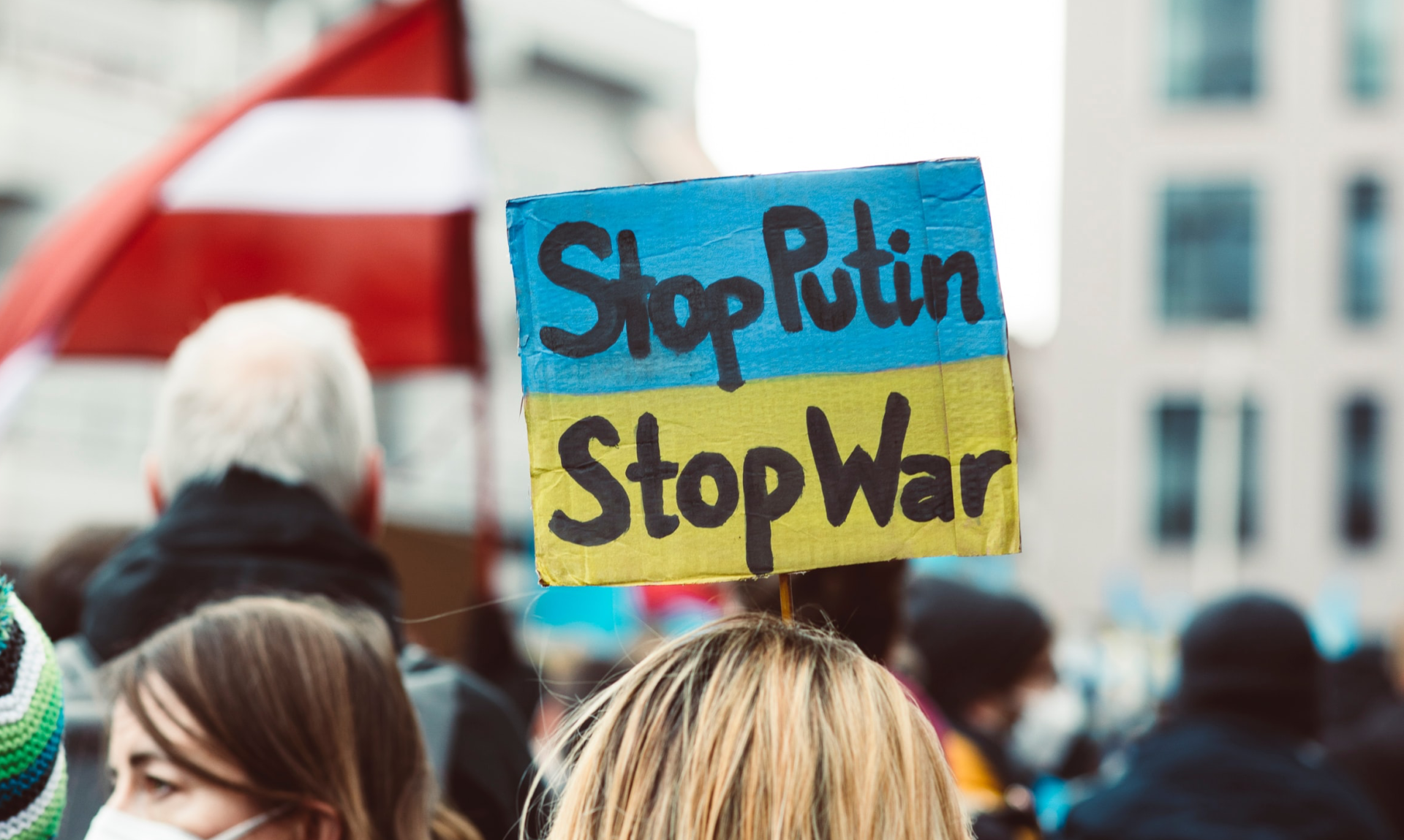Implications of the Russia-Ukraine Conflict
In the early hours of 24 February 2022, Russia invaded Ukraine. Months of contemplation and debates by international experts on the implications of Russia’s unprovoked war against its neighbour Ukraine on the global economy, suddenly became a reality.
This and many more such topics will be covered in the upcoming Horasis Global Meeting, that will propose ways of working towards the new era of peace and sustainability. The meeting will be a virtual one day event, that will bring together global leaders, who with their vast experience will try to propose ways for a sustainable and inclusive post-pandemic recovery.
What’s Playing Out?
Prior to the war, many global leaders were trying hard to broker peace between the two neighbours, but to no avail.
The US, EU and other members of the G7 has enforced crippling sanctions on Russian businesses, individuals and financial institutions. The US, EU, UK and others have put a ban on export of goods to Russia used by both its citizen and the military. Additionally, the G7 has removed Russia from the Most Favoured Nation list, stripping it of many trading benefits. All Russian flights have also been banned by the US, UK, EU and Canadian airspace. The US, UK and EU have also frozen international assets and imposed travel bans on Russian oligarchs along with members of the Russian parliament.
They are also attacking the heart of Russia – its oil and gas exports. In fact, the US is banning all Russian oil and gas imports, while the UK plans to phase out Russian oil by 2022. Meanwhile, the EU has already started looking at alternative energy supply, delimiting its dependency on Russian energy.
The sanctions are having devastating implications for Russians. Multinational businesses encompassing automotive to food and tech companies are pulling out of Russia. Not withholding the nation’s contribution to oil and natural gas export, multinational oil companies such as BP, Exxon and Shell have all announced to pull out of oil and gas projects in Russia. BP is abandoning nearly 20% of its stake in Rosneft, Russia’s state-owned oil and gas company. This divestment is expected to result in charges of up to $25 billion.
As on 8 March 2022, McDonald’s also announced to temporarily shutter its 850 outlets in Russia, putting more than 60,000 employees out of work and hundreds of local suppliers in a limbo. The move has also been echoed by other large F&B companies such as Coca-Cola, Pepsi, Starbucks, Nestle, Unilever and Papa John’s.
Within days of Russia’s war on Ukraine, the Russian rouble nosedived to 100 against the dollar and 109.4 against the euro. Russians lined up outside their banks to withdraw their savings to ensure they do not lose their savings due to devaluating currency and soaring inflation.
Ukraine’s economy has by far suffered the most in this modern war of David and Goliath. Other than the loss of lives, livelihoods and savings; IMF estimates Ukraine’s economy could contract by up to 35% in 2022. Vladyslav Rashkovan, the IMF’s alternate executive director for Ukraine, said: “The prolongation of Russia’s aggression towards Ukraine, in addition to the humanitarian and economic losses, will also lead to significant spillover effects throughout the world: deterioration of food security, surging of energy and commodity prices, rising inflationary pressures, disruption of supply chains, increasing social spending for refugees, and increasing poverty. The global economic damage of this war will be devastating.”
The Western sanctions on Russian oil and natural gas will definitely push the price of oil and gas globally. Oil prices is expected to remain above $100 per barrel and gas prices to increase by 50% this year.
The war has also impacted the supply chain routes between Asia and Europe. Land-based transit through Russia to Europe remains suspended, in particularly impacting Chinese companies who have increased traffic over land-based routes through Russia to enter Europe amid the pandemic. Sea freight routes through the Black Sea has also been disrupted amid the war. FedEx and UPS, have suspended both inbound and outbound shipments in and out of Russia and Ukraine, citing safety of their employees.
Disruption of supply chain routes has put the global grain markets in turmoil. Both Russia and Ukraine are key players in global markets for staple food commodities. With Ukraine’s commercial shipping suspended and shipping companies fearing to deal with Russian entities, “13.5 million tons of wheat and 16 million tons of maize are currently frozen in Russia and Ukraine.”
Global food prices for wheat has risen by 28% within two weeks (21 Feb 2022 to 7 March 2022). Similarly, the prices of maize have also gained by 17%.
Future Implications. No Winners
The Russia-Ukraine war will wipe off about $1 trillion of global GDP – reducing global GDP by 0.5% in 2022 and 1% in 2023. This will subsequently raise the global inflation to 3% in 2022 and about 2 percentage points in 2023.
Another fear that many speculate is that Russia may default on its billions of dollars in debt. European banks are the most exposed. France and Italy’s banks each have outstanding claims of about $25 billion on Russian debt, while Austrian banks have $17.5 billion.
With the uncertainty around the war looming, going forward, higher commodity prices will impact food security along with higher energy prices, which will raise inflation levels both domestically and around the world.




